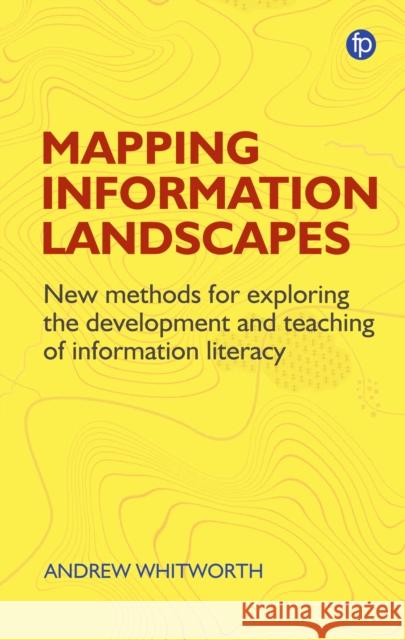Mapping Information Landscapes: New Methods for Exploring Information Literacy Education » książka
Mapping Information Landscapes: New Methods for Exploring Information Literacy Education
ISBN-13: 9781783304172 / Angielski / Twarda / 2020 / 272 str.
This is the first book to study how the political content of information literacy (IL) arises from the way it has become defined and is taught. It introduces new methods for research into the development of information literacy in learners, and explores the implications of this research for the design of IL teaching, both in formal educational settings and in workplaces. Power is not an inherently dominating thing, wielded only from `the top' (governments, senior managers in organisations, etc.) and used to oppress. The idea that information literacy education can be empowering , giving those at `the bottom' the power to investigate information practices and change them if necessary, is supported by the models of power emerging from the work of Michel Foucault. He sees power as being available, potentially, to all actors and agents in a given setting. This is view of power as something emerging from, and shaping, micro-level discourses, and which can generate capital, helping learners change their world and the practices that shape it. To understand how such an approach can be empowering, the book explores how we can draw on difference in productive ways in IL education with a theory-led, empirical investigation of how the way information literacy is taught - whether formally or informally, and whether in schools, universities or workplaces - influences the development of information practices at the micro-level. The book also draws on original research to provide a detailed account of how information practices emerge from communities of learners in different settings and how discursive mapping can be taught to learners. It also covers how the capacity to engage in it emerges from educational environments in a more indirect way, and how learners respond to and resist institutionalised power by developing their own capacity to stewarding their information landscapes and digital habitats. Information literacy educators, whether in libraries, other HE courses, high schools or the workplace, will benefit by learning about how mapping - implicitly and explicitly - can be used as a method of teaching IL. Also, how they can design learning environments that exploit the positive value











